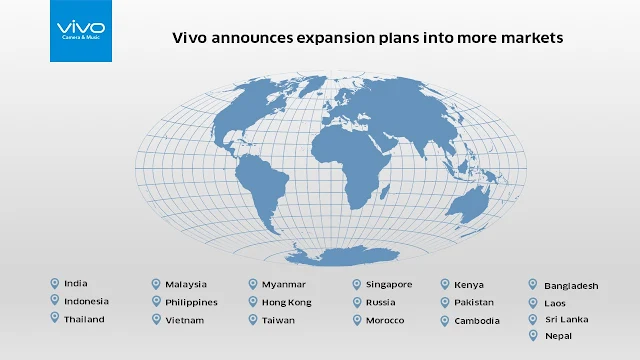Vivo enters the Hong Kong smartphone market with the launch of its latest handsets,
X20 from the X series. As part of its
global expansion into more markets, the company will soon bring their products
to Taiwan, Singapore and Russia, as their first foray into the European market,
followed by a push into the African market in early next year.
[ads-post]
Chinese smartphone
brands have seen sharp growth in the last year and, according to Counterpoint,
now hold a record 48% of global smartphone market share as they continue to
grow beyond mainland China. Building on the success of the wildly popular V7+
in India, Thailand, the Philippines, Myanmar, Malaysia, Indonesia, Pakistan, Cambodia
and Bangladesh, Vivo is expanding its reach and offering as it continues to
inspire confidence and self-expression in more young people around the world
with high-quality products
and advanced technology.
“Since
our first entry into the international markets in 2014, we have been dedicated to
understanding the needs of consumers through in-depth research to bring innovative
and stylish products that meet their lifestyle and needs,” said Alex Feng, Senior Vice President of Vivo. “We are thrilled
to enter Hong Kong, Taiwan, Singapore, Russia and Africa in the coming months. By bringing consumers our
innovative and quality products designed with them in mind, we hope to inspire
young people around the world to stay true to their individuality and embrace
self-confidence.”
The announcement
follows Vivo’s recent launch of flagship V7+, the ultimate selfie shooter with
industry-leading 24MP front camera and FullView™ display, in most Asian
countries. The V7+ is a selfie-centric
smartphone which represents Vivo’s mission of empowering self-expression of the
next generation. It features advanced technologies not only to the cameras but
to all aspects, from photo shooting to display, helping the media-savvy
consumers to capture and enjoy their meaningful memories.
According
to Gartner’s latest research, Vivo ranked 5th in global smartphone sales in 2Q
2017 in terms of volume with 6.6% market share.

